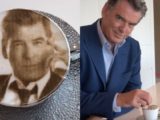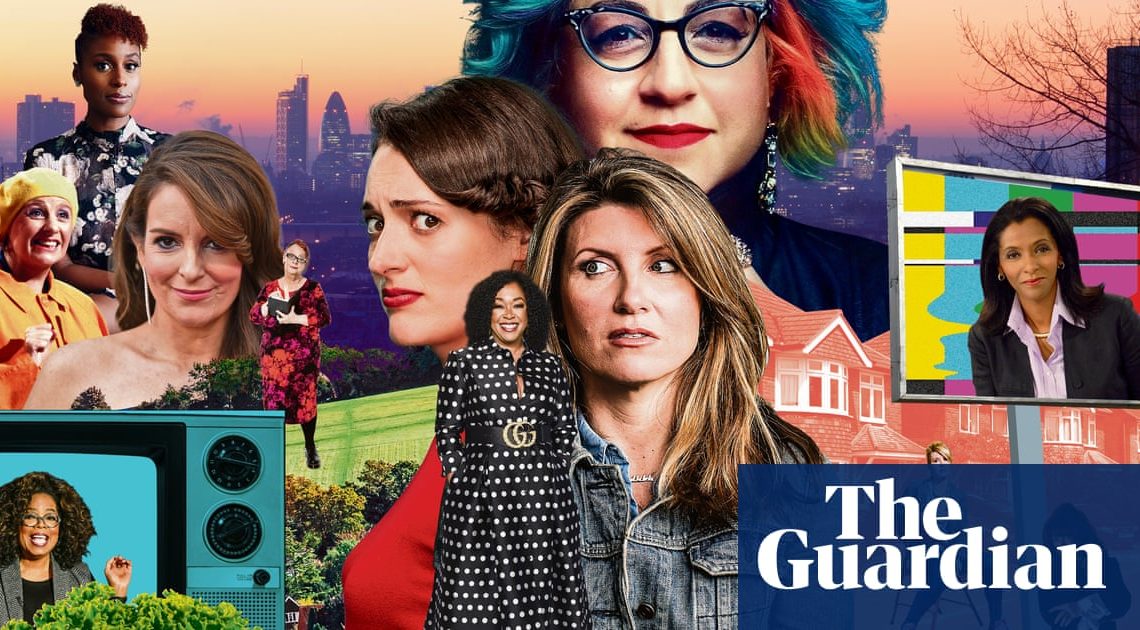
Screen queens: the funny, fearless women who revolutionised TV
March 4, 2019Phoebe Waller-Bridge exploded into our living rooms with Fleabag, her vicious comedy about an angry, awkward woman. As it returns, Guardian writers pick their TV heroines

Shonda Rhimes
Who gets to be the bitch?
This woman is such a rarity she is basically a unicorn. Shonda Rhimes is a black single mother who began as a freelance scriptwriter and struck gold in Hollywood when she created soapy medical drama Greys Anatomy, whose riotous success (15 seasons and counting), together with that of her political drama Scandal, made her one of the most powerful players in the business. She has her own production company called Shondaland and, most recently, scored a $150m deal with Netflix.
Rhimes is a born storyteller, but she also works to level the playing field regarding race and sex. Since Greys Anatomy, which was conceived as a way of showcasing a diverse cast, she has tried to address industry and national norms. And, for women, all her work has been informed by an absence: Most of the women I saw on TV didnt seem like people I actually knew. They felt like ideas of what women are. They never got to be nasty or competitive or hungry or angry. They were often just the loving wife or the nice friend. But who gets to be the bitch? Who gets to be the three-dimensional woman? Anyone in a Rhimes show. Lucy Mangan
Sally Wainwright
A grip on the reins of life
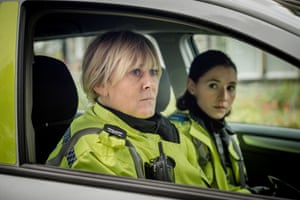
From At Home With the Braithwaites to Scott & Bailey to Happy Valley, there isnt a Wainwright-penned drama that doesnt put its women to the fore. Her characters are redoubtable, flawed, honest, passionate, determined to hang on to the reins of life even as it gallops away from them. Theyre stickers and stayers, like Sarah Lancashires Catherine Cawood in Happy Valley, hunting the villain who took her daughter from her while bursting with warmth, humanity and dry rejoinders. While her men are no cardboard cutouts, she always gives the women the meatiest slice of the pie. Julia Raeside
Zeinab Badawi
She co-parented me
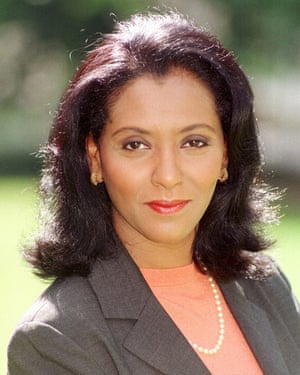
When I was a girl, I went through a phase of wanting to change my name to Zeinab Badawi. My own south Indian name was too unpronounceable and foreign, my shame-infected teenage reasoning went. The solution was clear: to rebrand myself as a glamorous British-Sudanese journalist with an equally unpronounceable foreign name who, for most of the 90s, co-presented Channel 4 News and co-parented me because our telly was always on and she was always on it.
Watching the news, I saw faces a little closer to mine: Moira Stuart, with her amazing eyeshadow and mildly amused expression; Trevor McDonald, who I used to confuse with my dad; and Badawi, whose identity I wanted to steal. This holy trinity eventually prompted me to announce to my parents that I was going to become a newsreader with the existential question: But if we get the news from Moira Stuart, where does she get it from? Chitra Ramaswamy
Tina Fey
Hot messes and kickass bosses
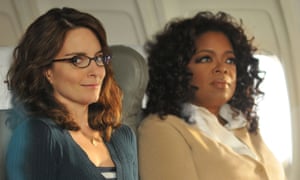
Writer, actor and producer Tina Fey deserves a round of applause for the sheer number of women shes put on TVs payroll, first as Saturday Night Lives head writer, then as the force behind 30 Rock, Unbreakable Kimmy Schmidt, Great News and Busy Tonight all female-first shows.
But her greatest contribution to the sisterhood is Liz Lemon, the character who, in the televisual sphere, gave women permission to fail. Based on Feys time at SNL, Lemon was 30 Rocks protagonist who reflected our lives as kickass girlbosses in one arena and hot messes in another. By stepping into the Louboutins of the recently-defunct Sex and the City only to trip up disgracefully, Lemon led the way for flawed females thereon, from the life-juggling Julia in Motherland to Fleabag. Take that, manic pixie dream girl. Shilpa Ganatra
Julia Davis
Monsters on the prowl
The joy of a Julia Davis comedy is that you never quite know what you are going to get. Whether the setting is modern suburbia, as with Sally4Ever, or the candlelit grimness of 1830s village life that was Hunderby, Daviss series are always populated with self-serving narcissists and painfully passive wet blankets who do horrible things to one another and incite chaos all around.
Nighty Night, her initial masterpiece, had an unparalleled opening that set the tone for the black comedy that was to come. On hearing grave news from the doctor, the deliciously monstrous Jill Tyrell starts to weep: Why me? Jill, lets keep it in perspective, consoles her husband Terry. Its me thats got the cancer. A true original. Rebecca Nicholson
Issa Rae
Awesome rise of Awkward Black Girl
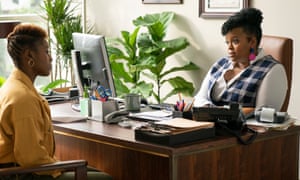
The US-Senegalese comic first showed a talent for nerdy dramedy with her crowdfunded web series The Misadventures of Awkward Black Girl. Entering the industry by DIY means, Issa Rae proved you dont have to be a Larry David or a Tig Notaro to create your own show.
HBOs Insecure became a hit, supersizing Awkward Black Girls tales of workplace racism and relationship woes in pop-culture-packed fashion. It also emphasised that there was a market for a comedy about black women just being themselves, and, er, occasionally trespassing into the homes of men whove ghosted them to trawl their search histories.
Forthcoming series Him or Her about a black, bisexual man promises to be another Rae game-changer. There havent been many flattering images of black males on television, she told the Atlantic, because there havent been a lot of flattering images of black people on television. Heres to continuing to change that. Hannah J Davies
Phoebe Waller-Bridge
Dark humour and female fearlessness
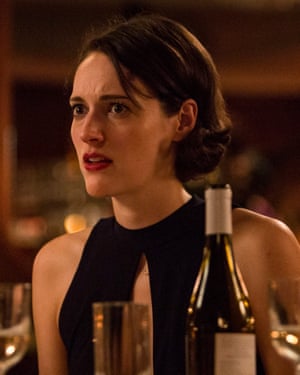
I have a horrible feeling that I am a greedy, perverted, selfish, apathetic, cynical, depraved, morally bankrupt woman who cant even call herself a feminist, announces Phoebe Waller-Bridges Fleabag in the opening episode of the eponymous TV series. It was the line that so perfectly captured not only the essence of Waller-Bridges protagonist, but her writing in general.
From property-guardian sitcom Crashing to psychological drama Killing Eve, Waller-Bridge has created women who are funny, subversive and wholly relatable. She has said she is drawn to writing women who are transgressive, those who break boundaries and flip expectations. Luke Jennings may have written the novel on which Killing Eve is based, but it was Waller-Bridge who laced the hit show with her trademark dark humour and female fearlessness.
Series one of Fleabag saw her bring to life women who time break-ups to coincide with their cleaning schedules, and admit theyd swap five years of their lives for the perfect body, women driven by desire and unwilling to conform to type. Fingers crossed for more of the same in series two. Leah Harper
Jenji Kohan
All hail the dykon!
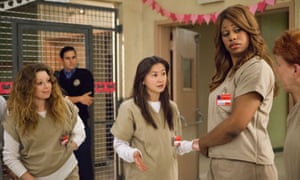
Its no exaggeration to say that Orange Is the New Black was a game-changer. The popularity of Jenji Kohans show proved that diversity sells that people arent just interested in the stories of conventionally attractive, thin white women. Laverne Coxs portrayal of Sophia Burset, a transgender woman, was groundbreaking and led to Cox becoming the first openly transgender woman to be nominated for a primetime Emmy in the acting category. And the amount of sapphic activity in the show was much appreciated by gays like myself, making Kohan a cultural icon among lesbians or, to use the technical term, a dykon. Arwa Mahdawi
The first TV critics
Something I wrote caused a strike
In the beginning, television critics worked from home because thats where the TV set was. I had a home, a TV set and no excuse. So I became a TV critic. It was a nice little job for a woman. Everyone said so. When I was pregnant, my husband offered to project the TV image on the ceiling for me. I think he expected more gratitude than he got. I would watch the nights TV, phone my copy in at midnight and the copy-taker, enraged by my version of the phonetic alphabet, would say: Is there much more of this stuff? (Who can remember their tango and foxtrot after midnight?)
So it was a relief to both of us when the TV companies started to show previews at their London headquarters or at shady dives in Soho. Snootily, in the case of the BBC (Previews are a privilege, not a right), and joyfully in the case of Yorkshire TV, who seemed to relish a day away from Leeds.
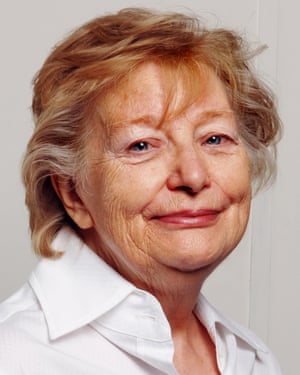
Sylvia Clayton, the Daily Telegraph critic, wrote a play for the BBC called The Preview based on us. One critic died unnoticed in the dark. This was inspired by the tendency of the Daily Expresss writer to drop off halfway through everything. I appeared as a critic always encumbered with shopping bags, spilling packets of fish fingers and cornflakes.
Sylvia I forgive her was simply brilliant. She was a prize-winning novelist and could speak any language from a cold country. I once heard her reprove a group of glorious young vikings, who were boasting about travelling without a ticket, in fluent Swedish. They all got off at the next stop.
Mary Malone, TV critic of the Daily Mirror, had the exotic air of a foreign correspondent. The New Yorker writer SJ Perelman, tripping over her Scoop-like luggage, said there had been nothing like it since John Hanning Speke went up the Nile. She was the archetype of what I imagined a female journalist would be before I actually became one. You thought of Rosalind Russell sitting on Cary Grants desk in His Girl Friday and crossing her legs with a sizzle of silk stockings. Mary married George Gale, the archetype of a male journalist, also known as Lunchtime OBooze.
We all did it for love. It must have been love. Every morning when everyone on the bus was discussing last nights television, I felt so puffed up and proud to be part of something that mattered. When the Daily Heralds entire cleaning staff went on strike and downed mops because of something I wrote about Up the Junction, a Wednesday play, I was thrilled. Because they must all have watched it. It was just bliss to be there at the beginning. Nancy Banks-Smith
Sharon Horgan
Too funny, too truthful, too brutal

The gloriously deadpan Sharon Horgan made her name with Pulling (co-written with Dennis Kelly), a six-part comedy about a group of late-twentysomething women in meltdown that was axed so unexpectedly that the explanation of best fit remains that the BBC simply couldnt cope with something so funny, truthful and brutal written by and about women.
She has continued in much the same vein, razing comforting lies, beloved myths and protective shibboleths about marriage: in Catastrophe (co-written with Rob Delaney), motherhood (in, uh, Motherland), ageing and failure (in Divorce) and all points in between (Women on the Verge, co-written with Lorna Martin).
Without Horgans scabrous voice insisting on making you laugh till youre sick at the dark underbelly of womens lives in particular and society in general, their frustrations, hypocrisies and utter idiocies, the world and its television would be a poorer place and markedly less fertile for pitches like Fleabag hinged on that horrifying idea: the unlikable female character. LM
Oprah Winfrey
The queen of everything
They call it Oprahfication: emotional outpourings, opinion spoutings and coming outs. The Oprah Winfrey Show all but normalised candour in the 90s, sparking a boom in oversharing that has basically for good or ill become the bedrock of culture today. Winfrey started out in local radio while still at school, then promptly got hired by a Nashville TV station as their youngest ever news anchor and the first of colour.
By 1986, she had turned around the fortunes of a Chicago talkshow and set up her own production company. In the intervening years, she has become Americas first and only female black multi-billionaire, nicknamed the Queen of All Media. She has also managed to star in copious TV shows and movies, transform Americas reading habits, launch a sideline as a mindfulness guru, and set up the Oprah Winfrey Network so brilliant auteurs like Ava DuVernay can create such cinematic dramas as Queen Sugar. All this while being instrumental in getting the first black president elected. Yes She Can. Kate Abbott
Grace Wyndham Goldie
By God, youve changed politics!
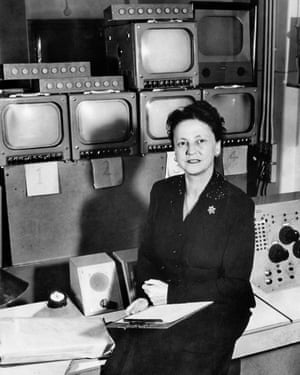
When Grace Wyndham Goldie joined the BBC in 1947, people spake the news and moved on, to the extent that, on a slow day, the bulletin would say: There is no news. She made TV more watchable by breaking the rules, making current affairs central to the very purpose of TV. She pioneered coverage of general elections back when it was illegal indeed, shes the reason we hold the vote count straight after polls close, rather than waiting until the next day. She created dynasties (she launched Richard Dimbleby and, with him, Panorama), maintained a much missed firewall between the BBC and government interference, and steadfastly resisted showbizification.
Theres a beautifully telling message from her boss in 1952, when shed just launched Press Conference: You did not invent the idea, my dear, of press people questioning politicians; this has already been done in the States. So you have not changed the nature of television, but by God you have changed the whole future of politics in Britain. Even those who recognised her immense value still, apparently, had as their uppermost concern that she might get ideas above her station.
They call her the First Lady of Television, which is annoying, implying: a) an invisible president; and b) that she was in the service of the medium, rather than its radical creator. Still, at least people didnt forget her. Beats being a lady scientist. Zoe Williams
Victoria Wood
Can I find it? Can I buffalo!

In her 20s, Victoria Wood was patronised by agents because, she recalled later, I was fat and a girl a double whammy. She was northern, when the comedy scene was dominated by southerners. She was doing a cabaret act, which hadnt been on anyones books since Nol Coward. But she ploughed her own furrow and, from the late 70s on, began to accrue success.
Her television work most famously Victoria Wood: As Seen on TV gave the world Acorn Antiques, Kelly Marie Tunstall and the line: Ive scoured this store from top to bottom. Can I find a side-winding thermal bodybelt? Can I buffalo!
There was no one else doing what she did, never mind as brilliantly. She created new space for comedy, especially for female comedians. Her voice, her rhythms, the precision with which every line was crafted not a missed beat, not an extraneous syllable and the laser-like specificity of her jokes influenced a generation of writers, on top of the joy it brought to millions. What a legacy. LM
Biddy Baxter
The great get-it-done woman
Brought in to helm an ailing Blue Peter in 1962, Biddy Baxter ended up inventing interactive TV. She introduced the now iconic Blue Peter badge and the shows charity appeal, which saw children up and down the land collecting milk bottle tops and holding bring and buy sales. The show that speaks directly to its young viewers, encouraging them to write in with thoughts, artwork and fundraising ideas, is still going strong, 60 years after the most formidable get-it-done woman at BBC TV Centre first click-clacked down its corridors. Many who worked for her say the sound of her heels on the studio steps reminded you to jump to it.
She gave equal weight to her presenters, challenging them to do equally harebrained things. If John Noakes could shin up Nelsons column without a harness, of course Lesley Judd could abseil from a lighthouse on to a tiny boat. Well before her time in so many ways, she led where so many others still follow. JR
Susan Harris
Golden Girls made ageing look amazing

When do you see passionate older people on television? Susan Harris asked, in a 1985 interview with the New York Times. When do you see people [over 50] in bed together? Eventually, on this show, you will. Its kind of pathetic that this show is televisions baby steps.
The show was The Golden Girls, and Harris, the writer and creator, certainly made good on her promise. That The Golden Girls featured four female leads over the age of 50 was groundbreaking in itself, but their antics, which included a lot of sex, made ageing look amazing. And Harris didnt just overturn stereotypes around age: The Golden Girls tackled everything from racism to Aids.
She didnt shy away from important topics in her other shows either. In 1972, she famously wrote an episode for the series Maude called Maudes Dilem
Read more: http://www.theguardian.com/us
Copyright 2018 Who That Celeb Privacy Policy - Terms and Conditions - Affiliate Disclosure
